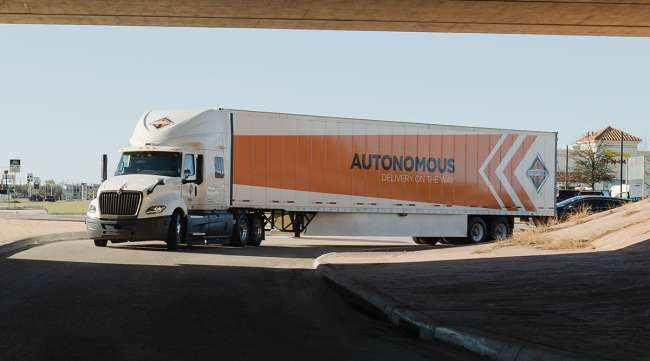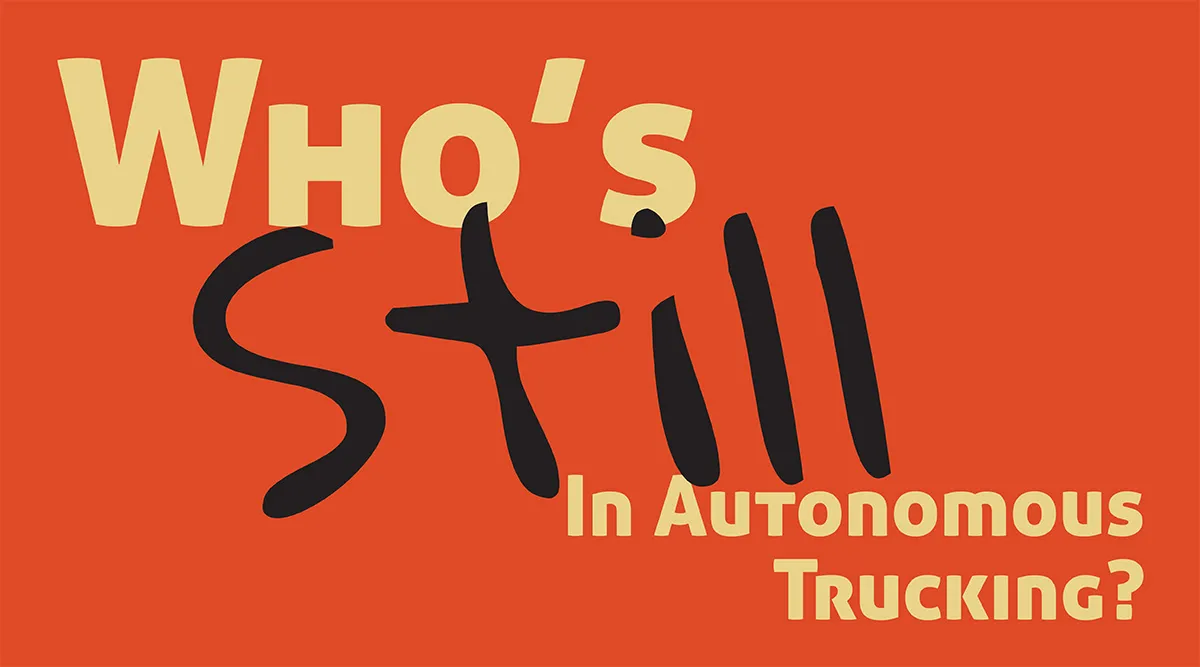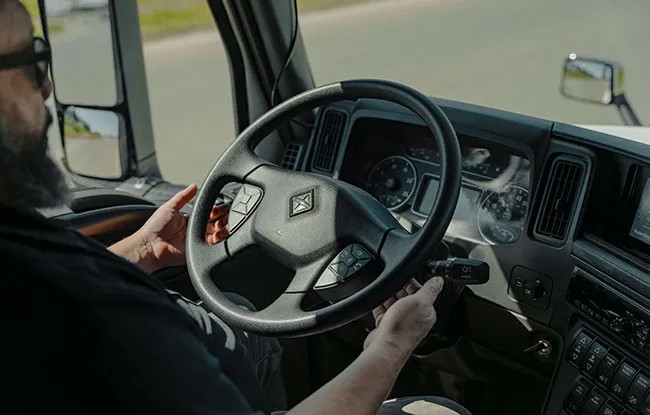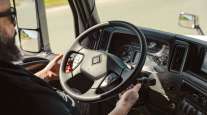Managing Editor, Features and Multimedia
Navistar Partners With Plus on Hub-to-Hub Autonomous Trucks

[Stay on top of transportation news: Get TTNews in your inbox.]
Truck maker Navistar Inc. has partnered with Plus, a developer of automated driving technology, to pave the way for hub-to-hub autonomous Class 8 trucks.
The companies announced March 12 that they have been actively testing self-driving International LT Series tractors equipped with the Plus SuperDrive system on public roads in Texas and plan to launch a commercial pilot program with fleet customers by the end of this year.
Today, the self-driving trucks have a safety driver behind the wheel as Navistar and Plus validate the technology, but the goal of the partnership is to commercialize fully autonomous, unmanned trucks to haul freight on major interstate routes between designated freight hubs.
Fully autonomous trucks hold the potential to improve highway safety and help alleviate fleets’ long-standing struggles to recruit and retain drivers, said Chet Ciesielski, vice president of Navistar’s on-highway business.

Ciesielski
“I see this as a need for the industry, and it’s a matter of when can we get there,” he said. “The fact that it’s coming is pretty inevitable.”
Navistar, a business unit of Traton Group, did not share a target date for commercially launching fully autonomous trucks, but Ciesielski said the company anticipates reaching that stage late in this decade.
Shawn Kerrigan, co-founder and chief operating officer at Plus, said the rollout of autonomous trucks will be a gradual shift, not something that will happen overnight.
“We see this as part of the overall solution to the growing problem of the driver shortage,” he said. “There’s this really clear market need for autonomous trucks. It’s really just a question of when.”
For now, the self-driving International trucks are hauling trailers carrying cinder blocks on initial test routes focused on the “Texas Triangle” connecting Dallas, Houston and San Antonio, Navistar’s Ciesielski said.
As the truck maker works with customers through its forthcoming pilot program, it plans to start moving freight with self-driving trucks and expand over time to other routes and geographies, he added.
Rather than replacing driver jobs, Navistar and Plus positioned autonomous trucks as a way for fleets to boost equipment utilization and help fill gaps in the industry’s workforce.

►Who's Still In Autonomous Trucking?
►Clevenger: Autonomous Trucking: A Rapidly Shifting Landscape
►Company snapshots: Aurora | Kodiak | Torc | Waabi | Stack AV | Gatik | Plus | Einride | Forterra | Outrider
►From November 2022: Who's Who in Self-Driving Truck Development
“[Fleets] have trucks sitting against the fence today, and they can’t get drivers in those trucks,” Ciesielski said.
The introduction of fully autonomous trucks on certain longhaul routes also could shift some driver jobs toward shorthaul routes that offer regular home time.
RELATED: Recruiting Leaders Say Demand for Truck Drivers Still Strong
“I think it brings a lot of opportunity to a driver,” Ciesielski said. “If you can have drivers doing more of the local work — doing that local delivery — they can see their families every night."
Before its agreement with Plus, Navistar partnered with another autonomous truck startup. In July 2020, Navistar and TuSimple announced plans to co-develop autonomous trucks with production targeted at that time for 2024, but the companies nixed that joint development agreement in December 2022. Currently, TuSimple is winding down its U.S. operations and shifting its focus to markets in the Asia-Pacific region.

Navistar and Plus intend to deploy autonomous trucks in hub-to-hub operations in the future. Today, the companies’ test trucks operate with a safety driver behind the wheel. (Navistar)
Meanwhile, other autonomous truck developers such as Plus have been expanding their operations.
In addition to its work with Navistar, Plus is integrating its SuperDrive technology with trucks built by European manufacturers Scania and MAN, two other commercial vehicle brands within the Traton Group.

Kerrigan
Kerrigan said Plus’ agreement with Navistar and the other Traton brands embodies the industry collaboration needed to successfully introduce autonomous trucks.
“We think this type of customer-focused, integration partnership between technology [developer] and OEM is really going to be the winning combination in this space,” he said.
Plus, headquartered in Santa Clara, Calif., has operations in the United States, Europe and Australia. Apart from its new agreement with the Traton brands, Plus has separate OEM partnerships with hydrogen fuel cell truck manufacturer Nikola Corp. in the United States and with truck maker Iveco in Europe.
Plus has been developing both driver-assist and fully autonomous driving systems. In addition to its SuperDrive technology for fully autonomous vehicles, the company has introduced a driver-assist system called PlusDrive that automates acceleration, braking and steering but still requires the driver to watch the road and actively monitor the system’s performance.
Other truck manufacturers also have been forming partnerships with developers of autonomous driving technology in recent years.
COMTO's April Rai offers tips to increase workforce diversity and grow profits.. Tune in above or by going to RoadSigns.ttnews.com.
Self-driving truck firm Aurora is integrating its technology on Class 8 vehicles from Volvo Trucks North America and Paccar Inc., the parent of Kenworth Truck Co. and Peterbilt Motors Co.
Daimler Truck, which builds Freightliner trucks in North America, is working on autonomous truck development with its independent subsidiary Torc Robotics.
In the medium-duty space, autonomous truck firm Gatik has been collaborating with Isuzu North America to integrate its technology on self-driving box trucks.
Want more news? Listen to today's daily briefing below or go here for more info:





